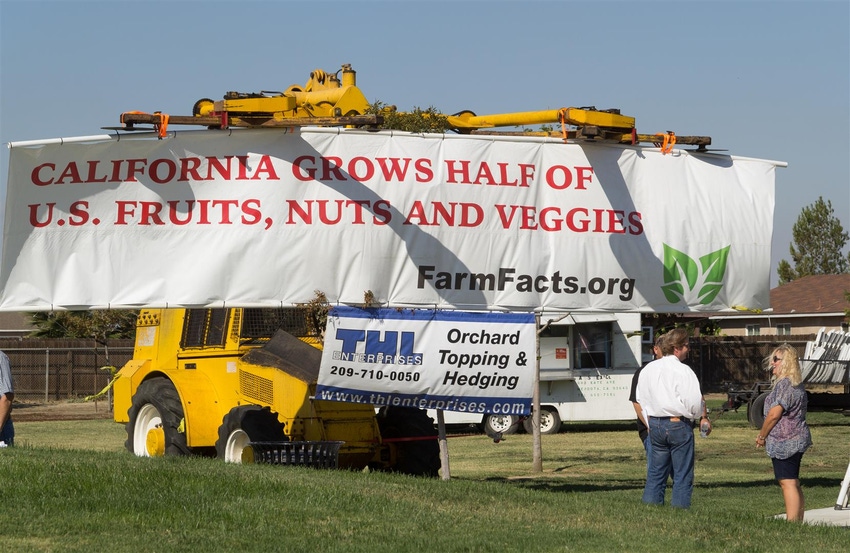October 5, 2016

Food Tank recently held it’s first-ever two-day summit in Sacramento, Calif. to “discuss and debate some of the most pressing issues facing agriculture in California and around the world,” according to company president Danielle Nierenberg.
I wasn’t there, but through the luxury of technology I was able to view the web streams of two panel discussions. The first panel left a bad taste in my mouth that I hope did not taint the entire proceedings.
Food Tank partnered with the University of California, Davis, Visit Sacramento, and the capital city’s Farm-to-Fork program for a “conversation.” That’s the popular thing these days among groups hoping to connect agriculture with consumers.
For me the bad taste started when panelist Bruce Goldstein, president, Farmworker Justice, implied bribery and other illegal activities between farmers and managers of farm labor contract companies.
He referenced a “wink and nod” relationship between farmers and the farm labor contractors they hire to harvest crops. He insinuates that growers bribe their farm labor contractors to cover up wage and hour violations.
This kind of talk is not surprising and it shows in the policy decisions made by lawmakers – particularly California lawmakers – who continue to pass laws that make it increasingly difficult for farmers to do business in California.
This is not to say that event organizer Food Tank or its sponsors endorse such statements. Still, it points to the misinformation and lies that are out there and are given legitimacy through such events.
Sadly, it seems these discussions do more to perpetuate age-old memes that paint commercial agriculture in a bad light than they do to feed people.
I understand the second day of the summit was dedicated to farm tours, so I’m optimistic a more correct report of agriculture was presented in at least some of those venues.
I remain unconvinced that events like this in our age of information-overload are the best way to keep agriculture sustainable.
Anyone with a Twitter handle and a URL can bill themselves a food expert. The more savvy ones find ways to make money at it.
I’m not so sure that this method of talking through ideas about food and agriculture benefits food producers as politicians continues to set bad farm policy in Sacramento and Washington D.C.
You May Also Like




